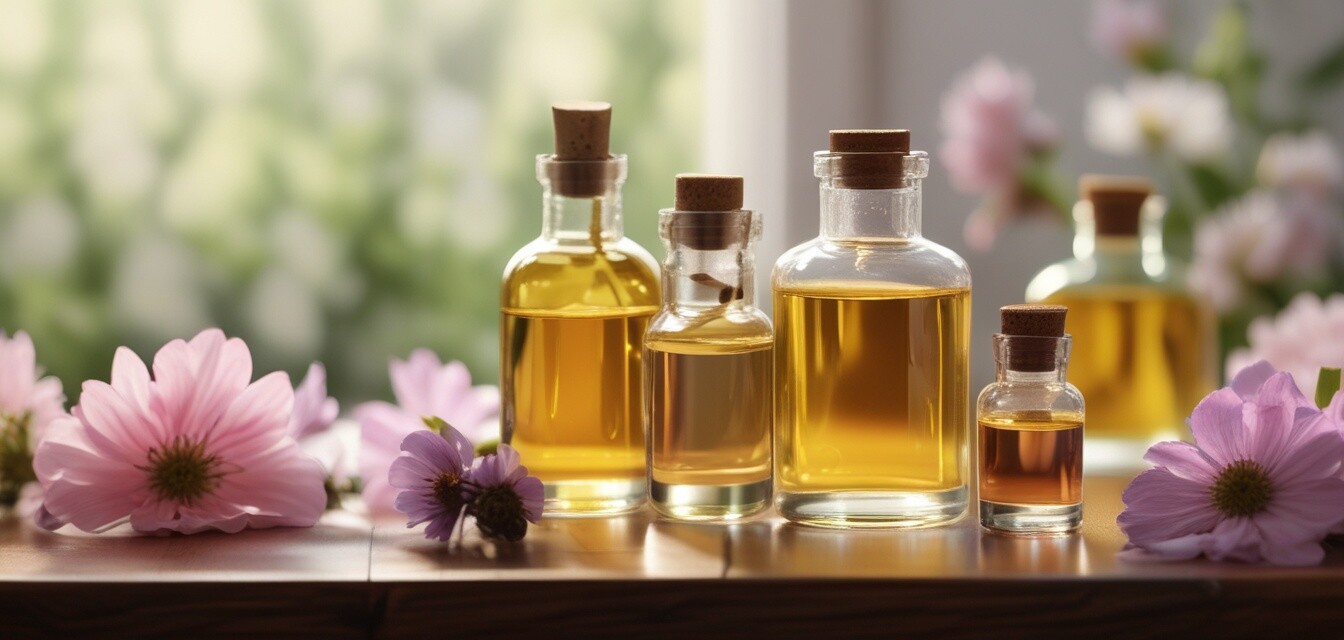
Using aromatherapy to alleviate allergy symptoms
Key Takeaways
- Aromatherapy can help manage allergy symptoms through specific essential oils.
- Popular oils for relief include eucalyptus, peppermint, and lavender.
- Inhalation and diffusion are effective methods to benefit from essential oils.
- Aromatherapy should complement other allergy management strategies.
- Practicing safe usage of essential oils is crucial for optimal benefits.
Aromatherapy has gained popularity as a natural approach to alleviate the discomfort associated with seasonal allergies. By utilizing essential oils known for their potential soothing properties, you can create a more comfortable environment during allergy season. In this article, we will explore how aromatherapy can be incorporated into your routine and the essential oils that may provide relief.
Understanding aromatic oils
Essential oils are concentrated plant extracts that retain the natural aroma and therapeutic properties of their source. They can be used in various ways to promote relaxation and enhance well-being. During allergy season, certain oils are particularly sought after for their potential to ease symptoms.
Popular essential oils for allergy symptoms
| Essential Oil | Potential Benefits |
|---|---|
| Eucalyptus | Promotes clear breathing and helps relieve nasal congestion. |
| Peppermint | Helps ease headaches and sinus pressure associated with allergies. |
| Lavender | Known for its calming effects, which can help reduce stress caused by allergy discomfort. |
| Tea tree | May assist in reducing inflammation and has antimicrobial properties. |
| Chamomile | Offers calming effects and may help alleviate sinus inflammation. |
Methods of using essential oils
There are several effective methods to incorporate essential oils into your daily routine. Understanding how to use them properly can enhance their benefits during allergy season.
Inhalation
Inhalation is one of the simplest ways to experience the benefits of essential oils. You can do this by:
- Adding a few drops of essential oil to a bowl of hot water and inhaling the steam.
- Using a personal inhaler filled with a blend of your chosen oils.
- Simply placing a drop of oil on a cotton ball and inhaling it directly.
Diffusion
Using a diffuser is another popular method. It disperses essential oils into the air, allowing you to breathe them in continuously. Here are some tips:
- Choose a room where you spend a lot of time, like your living area or bedroom.
- Experiment with different blends to find what works best for you.
- Allow the diffuser to run for a few hours, especially during peak allergy times.
Combining aromatherapy with other solutions
While aromatherapy can be a beneficial component of managing allergy symptoms, it’s essential to combine it with other approaches for maximum effectiveness. Here are some suggestions:
- Consider using allergy medications as directed by a healthcare professional.
- Incorporate air purifiers in your home to filter allergens.
- Maintain allergy-proof bedding for better sleep quality.
- Practice good hygiene habits to reduce exposure to allergens.
Safety tips for using essential oils
To ensure you benefit from aromatherapy without adverse effects, consider the following safety tips:
- Always dilute essential oils before applying them to your skin.
- Do a patch test to check for skin sensitivities.
- Consult with a healthcare provider if you are pregnant or have underlying health conditions.
- Store oils in a cool, dark place to maintain their efficacy.
Beginners section
If you’re new to aromatherapy, here are some easy steps to get you started:
- Choose one or two essential oils that resonate with you.
- Purchase a quality diffuser or inhaler.
- Begin with small amounts of oil and gradually increase based on preferred results.
- Keep a journal to track your symptoms and the effectiveness of the oils used.
- Don’t hesitate to experiment with different oils or combinations.
Conclusion
Aromatherapy can be a valuable ally in your toolkit for managing allergy symptoms. By understanding and using essential oils effectively, you can create a more soothing environment during allergy season. Remember to practice safe use and combine aromatherapy with other effective strategies for comprehensive management.
Pros
- Natural approach to alleviating symptoms.
- Flexible methods of application.
- Can enhance relaxation and well-being.
Cons
- Not a replacement for medical treatments.
- Potential for allergies to certain oils.
- Effects may vary between individuals.